Is it time for the U.S. to end its alliance with Saudi Arabia?
The sharpest opinions on the debate from around the web

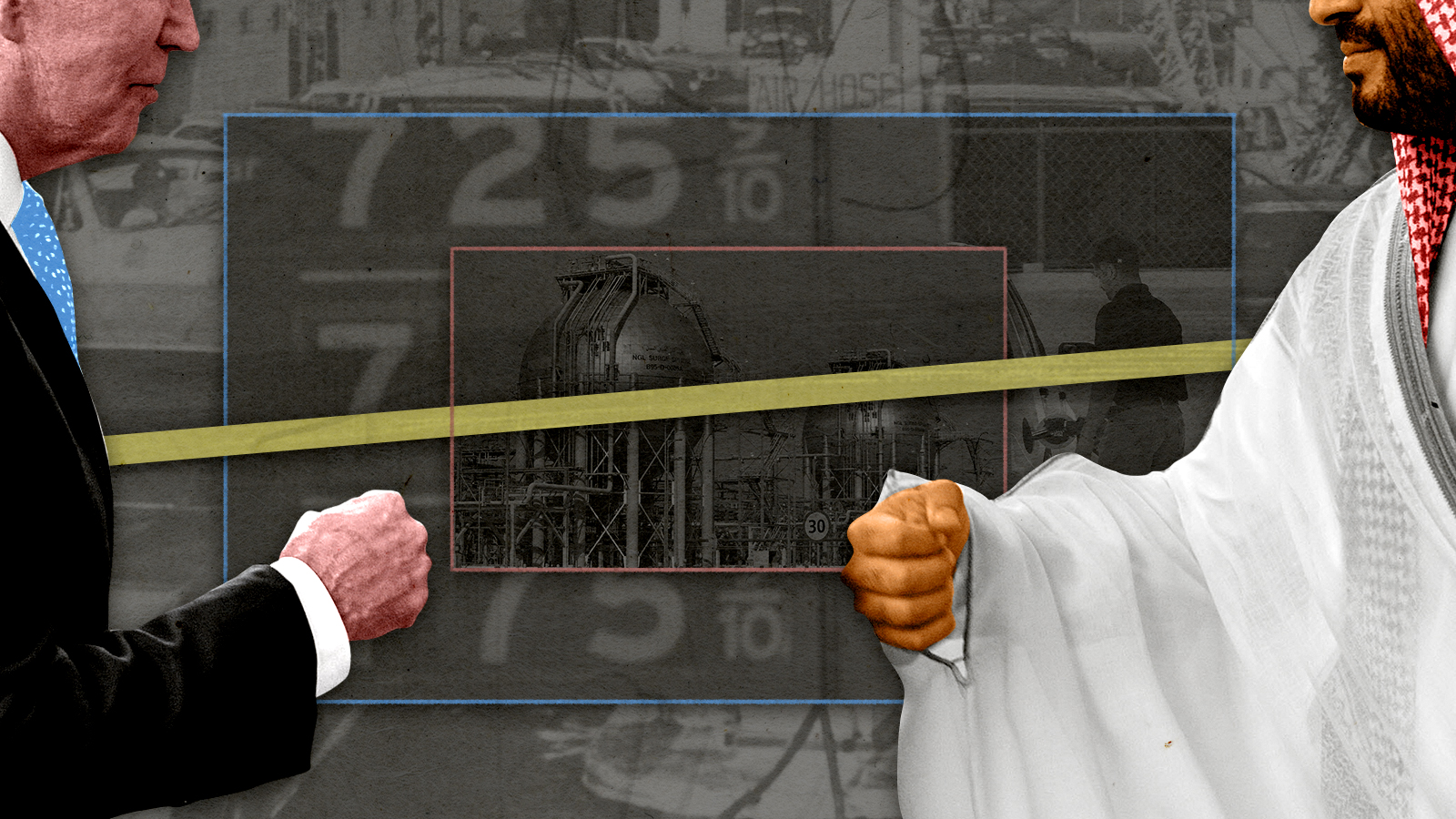
A free daily email with the biggest news stories of the day – and the best features from TheWeek.com
You are now subscribed
Your newsletter sign-up was successful
The Biden administration is considering urging American companies not to expand projects with Saudi Arabia in retaliation for the Saudi-led push by major oil producers to cut production, NBC News reported Tuesday, citing three current and former U.S. officials familiar with the matter. The United States also won't send an official representative to Saudi Arabia's annual Future Investment Initiative conference next week, although that decision was made before the Saudi-led Organization of the Petroleum Exporting Countries (OPEC) and other major producers led by Russia agreed on Oct. 5 to slash production by two million barrels a day to cut prices.
President Biden has warned that Saudi Arabia will face "consequences" for siding with Russia, after Moscow's invasion of Ukraine contributed to a spike in fuel prices in the spring that contributed to crushing inflation worldwide. Biden reportedly plans to release another 10 to 15 million barrels of oil from the U.S. strategic reserve as oil prices threaten to rise again following the output cut by the so-called OPEC+ alliance. Biden says he is taking a fresh look at the close relationship between Washington and Riyadh, and considering other ways to respond. Is it time for the United States to step back from its unofficial alliance with Saudi Arabia?
It's time to end close ties with Saudi Arabia
President Biden campaigned promising to "make Saudi Arabia a 'pariah' for its human rights abuses and its seven-year war with Yemen," says Mohamad Bazzi in The Guardian. Then Biden "shared a fist bump" with Saudi Crown Prince Mohammed bin Salman — who allegedly approved the murder of Washington Post columnist Jamal Khashoggi — as the coronavirus pandemic and Russia's Ukraine invasion forced Biden to set aside his concerns "in favor of realpolitik." That "cringe-inducing" photo op "has backfired in spectacular fashion," yielding "nothing but a 2 percent reduction of the world's oil supply" as inflation is already strangling U.S. households less than a month before the midterm elections that will determine whether Democrats or Republicans control Congress.
The Week
Escape your echo chamber. Get the facts behind the news, plus analysis from multiple perspectives.

Sign up for The Week's Free Newsletters
From our morning news briefing to a weekly Good News Newsletter, get the best of The Week delivered directly to your inbox.
From our morning news briefing to a weekly Good News Newsletter, get the best of The Week delivered directly to your inbox.
Prince Mohammed might think he "outmaneuvered Biden and demonstrated his influence over the global oil market," but he might soon regret his "power play." Even "so-called foreign policy 'realists'" who have defended the U.S.-Saudi partnership are starting to ask what Washington is getting "in return for its decades of unwavering support for the House of Saud." A reliable oil supply is the main purpose of the relationship, which the Saudis have used to get military training and advanced weapons. "If Biden doesn't respond forcefully, he may embolden the crown prince to take more risks." It's time to acknowledge that the "supposed realist approach toward Saudi Arabia has failed – and tear up the oil-for-security deal."
Biden can take a less drastic stand
So far, it's hard to know whether Biden means it when he says there will be "consequences" for the production cut, says National Review's Jim Geraghty in The Washington Post. "Even as Biden says he wants to punish the Saudis, the Pentagon is going full speed ahead with plans to build a major testing facility in Saudi Arabia," the Red Sands Integrated Experimentation Center. Red Sands, which would test new missile defense systems and technologies to combat the rising threat from unmanned drones, "remains untouched," as do the billions in annual U.S. arms sales to MBS's regime.
"Canceling the Red Sands project — or at least putting it on ice for now — seems like a no-brainer." It will show Riyadh that Biden means business, and it could be restarted quickly "if MBS looks at the fight between Russia and the West, realizes he has backed the wrong horse, and changes course." But as long as the crown prince is "so blatantly thumbing his nose at Biden," it's fair to question whether it's worth feeling "so invested, financially and geopolitically, in helping make the Saudi kingdom more secure."
Punishing Saudi Arabia will only backfire
Abandoning ties with Saudi Arabia "mainly involves hurting the U.S. economy and pushing our erstwhile allies in the Middle East further into the arms of Russia and China," says The Wall Street Journal in an editorial. One idea floating around, for example, is a bill that would let the Justice Department file antitrust suits against state-owned OPEC oil companies. "This wouldn't have much effect on oil prices, but it almost surely would invite retaliation against U.S. companies." Another "dazzling brainstorm" is to halt arms sales to the Saudis for a year, but that would only make them "more vulnerable to Iran."
A free daily email with the biggest news stories of the day – and the best features from TheWeek.com
Fortunately, there's a better solution. The White House takes great pains to "discourage U.S. oil production in the name of climate change," while begging dictators who lead Iran and Venezuela so they can sell more oil and have more money to stir anti-American trouble." And now it's alienating a longstanding ally, Saudi Arabia, for saying it's going to pump less. "Wouldn't it be easier, and better for U.S. interests, to unleash U.S. oil production?"
Boosting all U.S. energy sources is the answer
Let's take a "deep breath," says The Washington Post in an editorial. Saudi Arabia and Russia are the world's No. 2 and No. 3 crude oil producers, so they "have leverage — in the short run." But the U.S. can protect its long-term interests by "taking advantage of our domestic supplies of fossil fuels and green energy, as the climate provisions of the Inflation Reduction Act will ensure."
Lawmakers also can "facilitate the build out of transmission lines and other critical energy infrastructure," while doing more to encourage energy conservation with higher fuel taxes and other measures. Yes, fuel taxes raise pump prices, but at least the added money funds highways at home instead of going to Moscow and Riyadh. "Ultimately, the 1973 oil embargo backfired on its authors because it shocked the United States and other industrialized countries to use energy much more efficiently. A smart response can turn the OPEC+ production cut to the United States' ultimate advantage as well."
Harold Maass is a contributing editor at The Week. He has been writing for The Week since the 2001 debut of the U.S. print edition and served as editor of TheWeek.com when it launched in 2008. Harold started his career as a newspaper reporter in South Florida and Haiti. He has previously worked for a variety of news outlets, including The Miami Herald, ABC News and Fox News, and for several years wrote a daily roundup of financial news for The Week and Yahoo Finance.
-
 Minnesota's legal system buckles under Trump's ICE surge
Minnesota's legal system buckles under Trump's ICE surgeIN THE SPOTLIGHT Mass arrests and chaotic administration have pushed Twin Cities courts to the brink as lawyers and judges alike struggle to keep pace with ICE’s activity
-
 Big-time money squabbles: the conflict over California’s proposed billionaire tax
Big-time money squabbles: the conflict over California’s proposed billionaire taxTalking Points Californians worth more than $1.1 billion would pay a one-time 5% tax
-
 ‘The West needs people’
‘The West needs people’Instant Opinion Opinion, comment and editorials of the day
-
 The billionaires’ wealth tax: a catastrophe for California?
The billionaires’ wealth tax: a catastrophe for California?Talking Point Peter Thiel and Larry Page preparing to change state residency
-
 Bari Weiss’ ‘60 Minutes’ scandal is about more than one report
Bari Weiss’ ‘60 Minutes’ scandal is about more than one reportIN THE SPOTLIGHT By blocking an approved segment on a controversial prison holding US deportees in El Salvador, the editor-in-chief of CBS News has become the main story
-
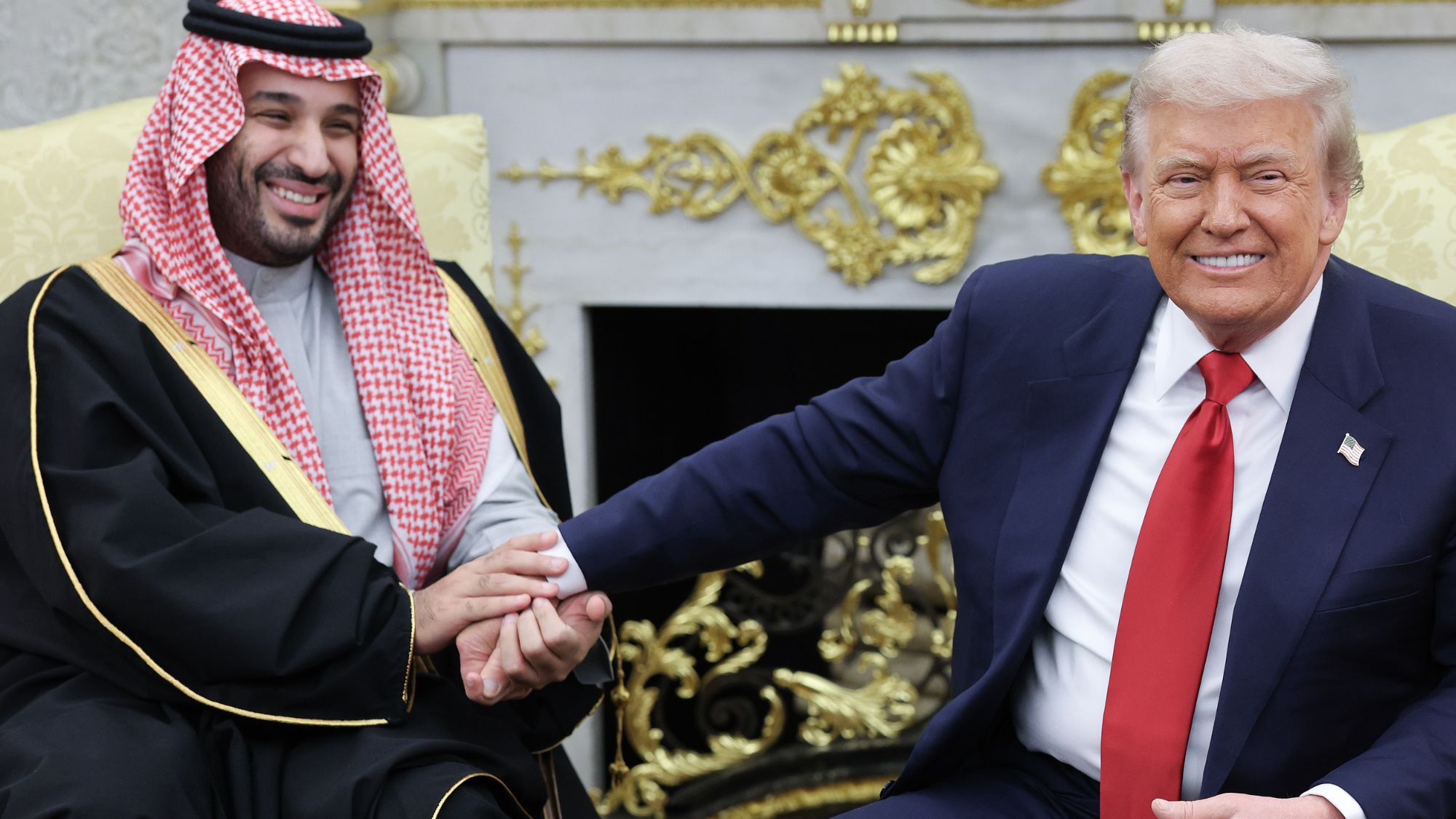 The US-Saudi relationship: too big to fail?
The US-Saudi relationship: too big to fail?Talking Point With the Saudis investing $1 trillion into the US, and Trump granting them ‘major non-Nato ally’ status, for now the two countries need each other
-
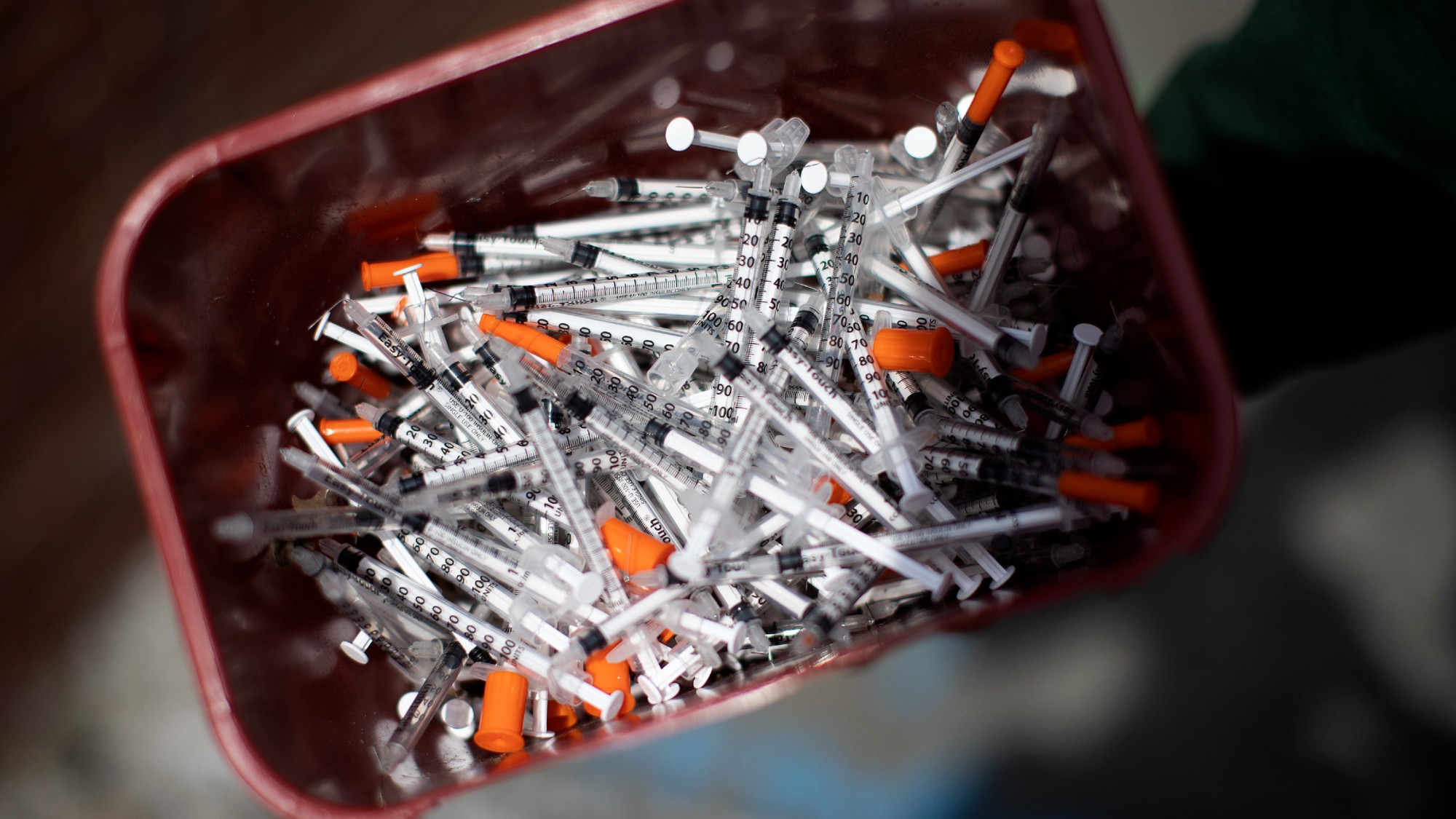 ‘The money to fix this problem already exists’
‘The money to fix this problem already exists’Instant Opinion Opinion, comment and editorials of the day
-
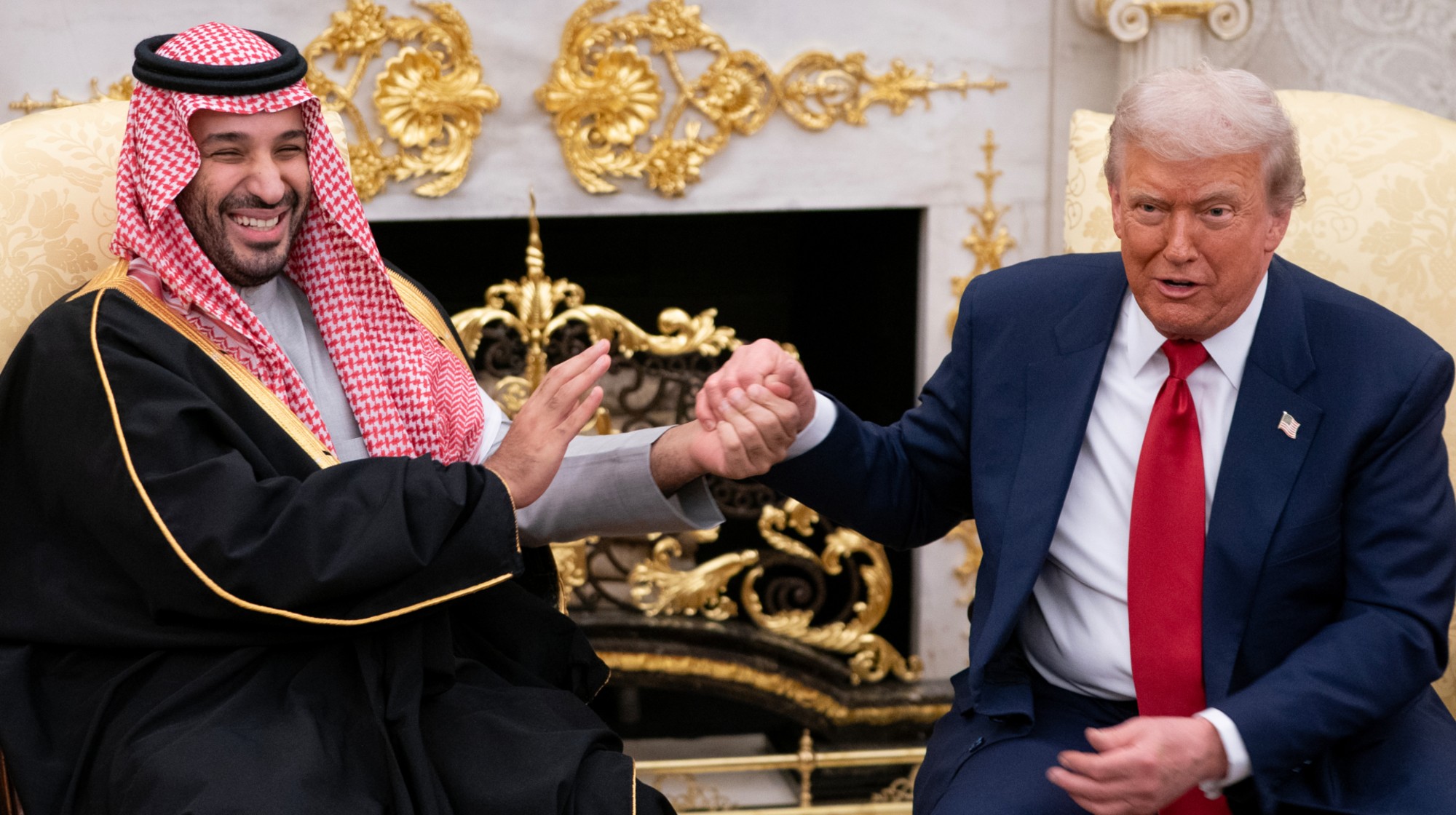 Trump defends Saudi prince, shrugs off Khashoggi murder
Trump defends Saudi prince, shrugs off Khashoggi murderSpeed Read The president rebuked an ABC News reporter for asking Mohammed bin Salman about the death of a Washington Post journalist at the Saudi Consulate in 2018
-
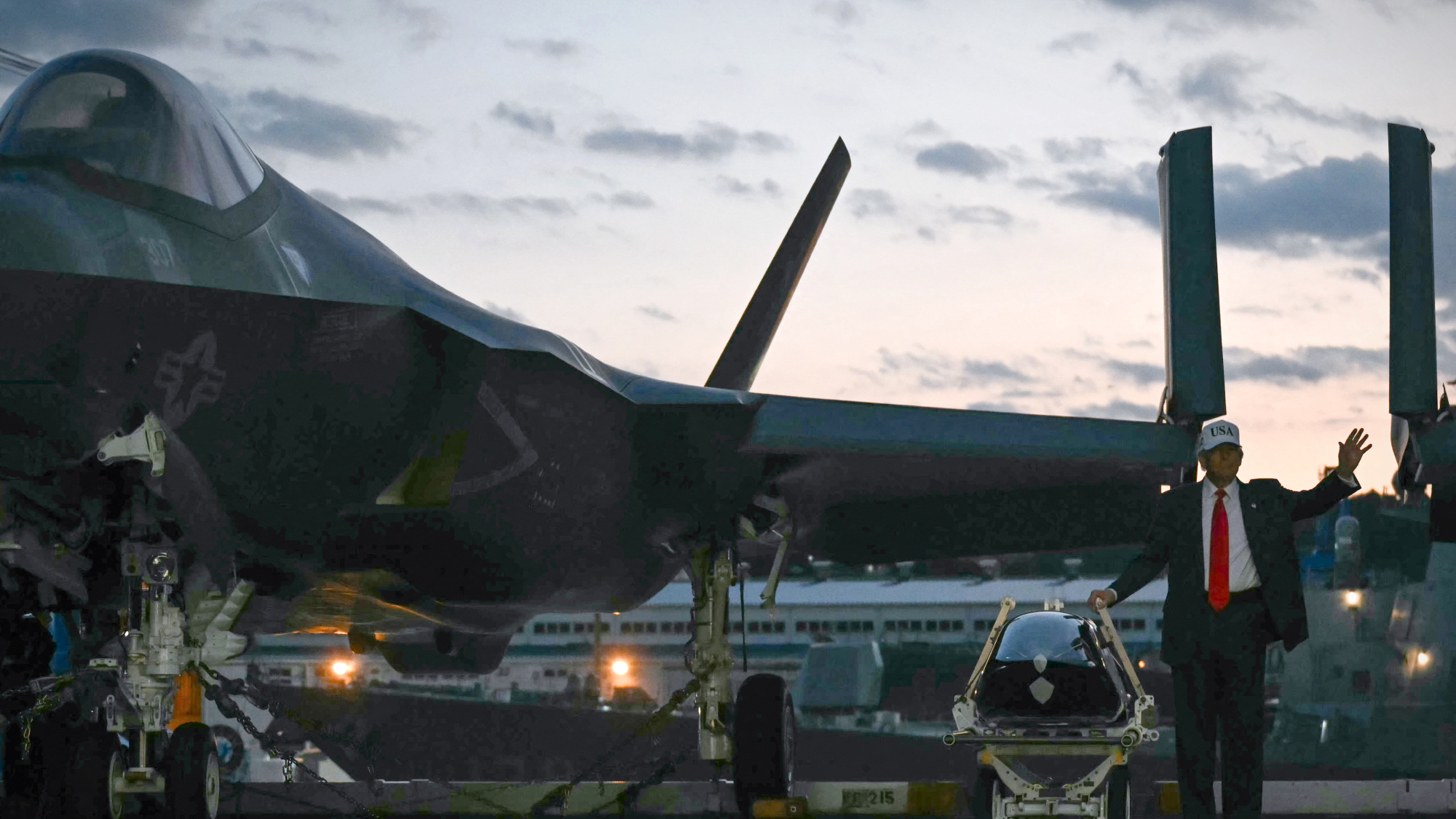 Trump says he will sell F-35 jets to Saudi Arabia
Trump says he will sell F-35 jets to Saudi ArabiaSpeed Read The president plans to make several deals with Saudi Crown Prince Mohammed bin Salman this week
-
 Has Zohran Mamdani shown the Democrats how to win again?
Has Zohran Mamdani shown the Democrats how to win again?Today’s Big Question New York City mayoral election touted as victory for left-wing populists but moderate centrist wins elsewhere present more complex path for Democratic Party
-
 Millions turn out for anti-Trump ‘No Kings’ rallies
Millions turn out for anti-Trump ‘No Kings’ ralliesSpeed Read An estimated 7 million people participated, 2 million more than at the first ‘No Kings’ protest in June
